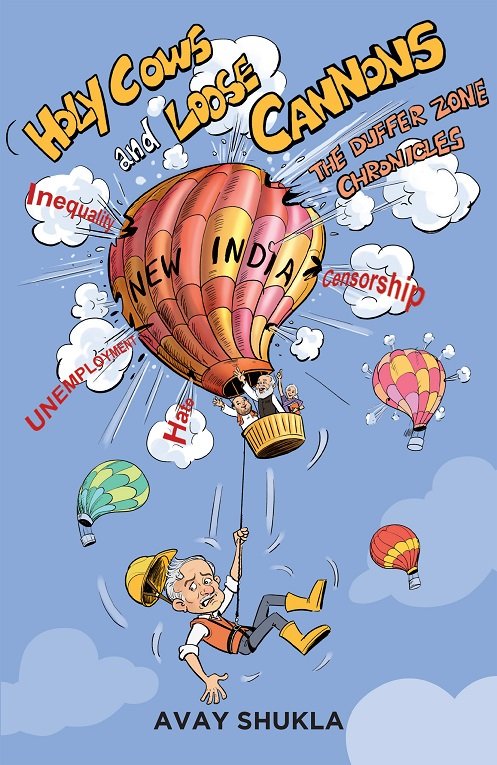An unscrupulous promoter, his brother and their associates first acquired control over an urban cooperative bank. They then proceeded to milk the bank dry. Then, despite their connections with influential politicians, they found themselves behind bars.
This is the story in brief of scamster Anand Krishna Johari and the ill-fated City Cooperative Bank of Lucknow. In the process, Johari and his cohorts have left behind hundreds of ordinary middle-class investors whose hard-earned savings have disappeared into thin air.
The manner in which Johari operated and the way he successfully manipulated a lax and rickety financial system have been documented in detail in the draft report of the Joint Parliamentary Committee inquiring into last year's stock market scandal.
The City Cooperative Bank Limited, Lucknow, was registered on 22 August 1994 under the Uttar Pradesh Cooperative Societies Act of 1965 and was issued a licence to carry on banking activities on 21 January 1995.
The following year, 1996, Anand Krishna Johari was 'elected' to serve on the board of the bank as Director, Finance. He became, for all practical purposes, the key individual who took all major investment decisions of the bank.
The City Cooperative Bank, like other urban cooperative banks, has two sets of bosses. The first is the state Registrar of Cooperative Societies. The second is the country's central bank and apex monetary authority, the Reserve Bank of India.
In actual practice, however, this bank became the personal property of Johari and his associates while the regulatory authorities looked the other way. That is, until 20 March 2001.
On that day, the bank's depositors rushed to withdraw their deposits from its four branches in Lucknow following a report in the local edition of Dainik Jagran newspaper. The report stated that Johari had defaulted on his financial obligations.
Soon thereafter, an investigation was conducted into the affairs of CCB by the Lucknow regional office of the RBI. The investigators soon realized that they had opened a can of worms.
On 3 April 2001, the Reserve Bank of India formally registered a criminal complaint in the court of the Chief Judicial Magistrate against the bank, its chairperson and 11 of its directors, including Anand Krishna Johari and his brother Arvind Kishore Johari.
The RBI's investigations revealed that the Joharis had promoted a number of companies into which funds belonging to the CCB had been illegally diverted.
The RBI's guidelines explicitly specify that urban cooperative banks be prohibited from investing their surplus funds in private companies.
Such funds have to be invested only in specified financial instruments such as bonds issued by public sector undertakings, shares of all-India financial institutions or units issued by the Unit Trust of India. It transpired that the CCB had blatantly violated the RBI's guidelines.
The Joharis had floated some 30-odd companies including a stockbroking firm called Century Consultants, besides companies such as Cyberspace Infosys, Kamal Infosys, Kamal Infosys Integrated Technologies, Country Informtech Services and Midas Touch.
It is hardly a coincidence that the obscure Lucknow-based Joharis chose to append the name Infosys to some of the corporate bodies they had promoted - after all, this is the name of India's best-known and most-reputed information technology company.
As on 22 March 2001, the CCB's outstanding investments as per its books of account were in excess of Rs 30 crore (Rs 300 million). However, the bank did not possess documentary evidence to explain investments worth more than Rs 21 crore (Rs 210 million).
According to the draft report of the JPC, the CCB had made many "fictitious" advances, including advances to companies promoted by the Joharis.
The RBI's inspection found that loan applications were blank, documents did not bear signatures of the borrowers, sanction and disbursement notes were not signed by any bank official, advances were not backed by any collateral and demand drafts were issued without ensuring the end-use of the funds lent.
It was also found that the auditors of the state cooperative department had pointed out many irregularities, but little had apparently been done to rectify such irregularities.
Documents that the auditors had asked for were not provided to them.
When Anand Krishna Johari appeared before the JPC, he had lapses of memory. At one stage, he told the panel of MPs: "…I do not remember if any investment was made in Cyberspace. I do not have any documents. For the past ten months or more, I have been in jail. So, I do not remember anything…"
The JPC, in its draft report, has urged the Uttar Pradesh government to inquire why successive registrars of cooperative societies were not sufficiently "vigilant" in exercising supervision on the working of the bank.
The 30-member committee of Parliamentarians has also called on the Central Bureau of Investigation to complete its investigations expeditiously and find out where an estimated Rs 30 crore (Rs 300 million) siphoned out of the bank had been deployed.
What the draft report of the JPC does not state are the following facts. The former Chairman of the UTI, P S Subramanyam, and two executive directors of the UTI, M M. Kapoor and S K Basu, had been arrested in June 2001 for their alleged role in investing a sum of Rs 32 crore (Rs 320 million) belonging to the UTI in Cyberspace.
All three were released on bail on 7 August last year. These senior officials of the country's oldest and largest mutual funds organization had to experience the ignominy of spending time behind bars like Anand Krishna Johari.
The Johari brothers, who have risen from a nondescript background to become one of Lucknow's leading share merchants, had managed to entice hundreds of ordinary investors to park their savings in Cyberspace.
The market price of the company's Rs 10 scrip had risen from below par value to touch a peak of as high as Rs 1,480 before crashing.
Many aggrieved investors have pleaded before the high court at Allahabad that they be compensated out of the Investor Protection Fund operated by the Bombay Stock Exchange.
The Johari brothers have had very close links with the Rashtriya Swayamsevak Sangh, the ideological parent of the ruling Bharatiya Janata Party.
An important functionary of the UP wing of the RSS and the Vishwa Hindu Parishad, Pradeep Narain Mathur, used to be an executive director in Century Consultants, a company promoted by the Joharis. Mathur, too, has been in judicial custody.
The former Housing and Urban Development Minister of UP in the Rajnath Singh government and leading light of the BJP in the state, Lalji Tandon, was responsible for allotting land for a software technology park set up by the Johari brothers in partnership with the state government.
The foundation stone of the technology park - grandiosely named 'Cybertron Technopolis' - was laid in January 2001 in the presence of Tandon and the governor of UP, Vishnu Kant Shastri. That it was done by Prime Minister of India Atal Bihari Vajpayee is just incidental.


